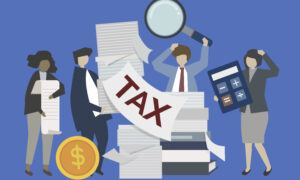
What should I do if I have too much debt? Paying it off is out of the picture. I am trying to save to move out of my parents’ home quickly due to an eviction. Please help!
Submitted by an anonymous SaverLife member.
I’m proud of you for reaching out to get help with your financial situation. It sounds like you have a lot going on and your debt is a major factor in the situation. Depending on how your debt has impacted your credit history and score, it may be difficult to rent a home right now. Here are steps to help you get control of your debt so that living on your own can become a reality.
Meet with a Nonprofit Credit Counselor
A credit counselor can work with you to review your debt, assess payment options, and identify strategies to address your housing situation. Nonprofit credit counseling centers provide assistance with debt management, review of credit reports, bankruptcy counseling, and counseling for other financial issues. Go to the National Foundation for Credit Counseling website and enter your zip code to find a center near you. You don’t have to go it alone!
Review Your Credit Report
Your credit report is a record of your history of managing and repaying debt. The report will show all of your current and past credit accounts, amounts owed, payment history, and accounts that are delinquent. There are three credit reporting agencies: Experian, Equifax, and Trans Union. Because of the COVID-19 pandemic, consumers can check reports from all three agencies weekly until April of 2021. Go to AnnualCreditReport.com to check your reports. You will need to provide your name, address, social security number, and date of birth to verify your identity. Checking your report will give you the information you need to assess your debt situation.
Reflect on Your Situation
Before making any changes, reflect on what happened to get you into this situation. What do you want to change? Be objective and make a list of the specific events that caused the debt. Whether it was a medical emergency, student loan debt or an unhealthy relationship, understanding where you have been will help you set goals. Once you have reflected on the situation, identify two to three goals you want to achieve or changes you want to make.
Right now, you may feel as though there is no way out of your debt. Learning more about how to manage and pay off your debt and how it impacts you will help get you on track.


